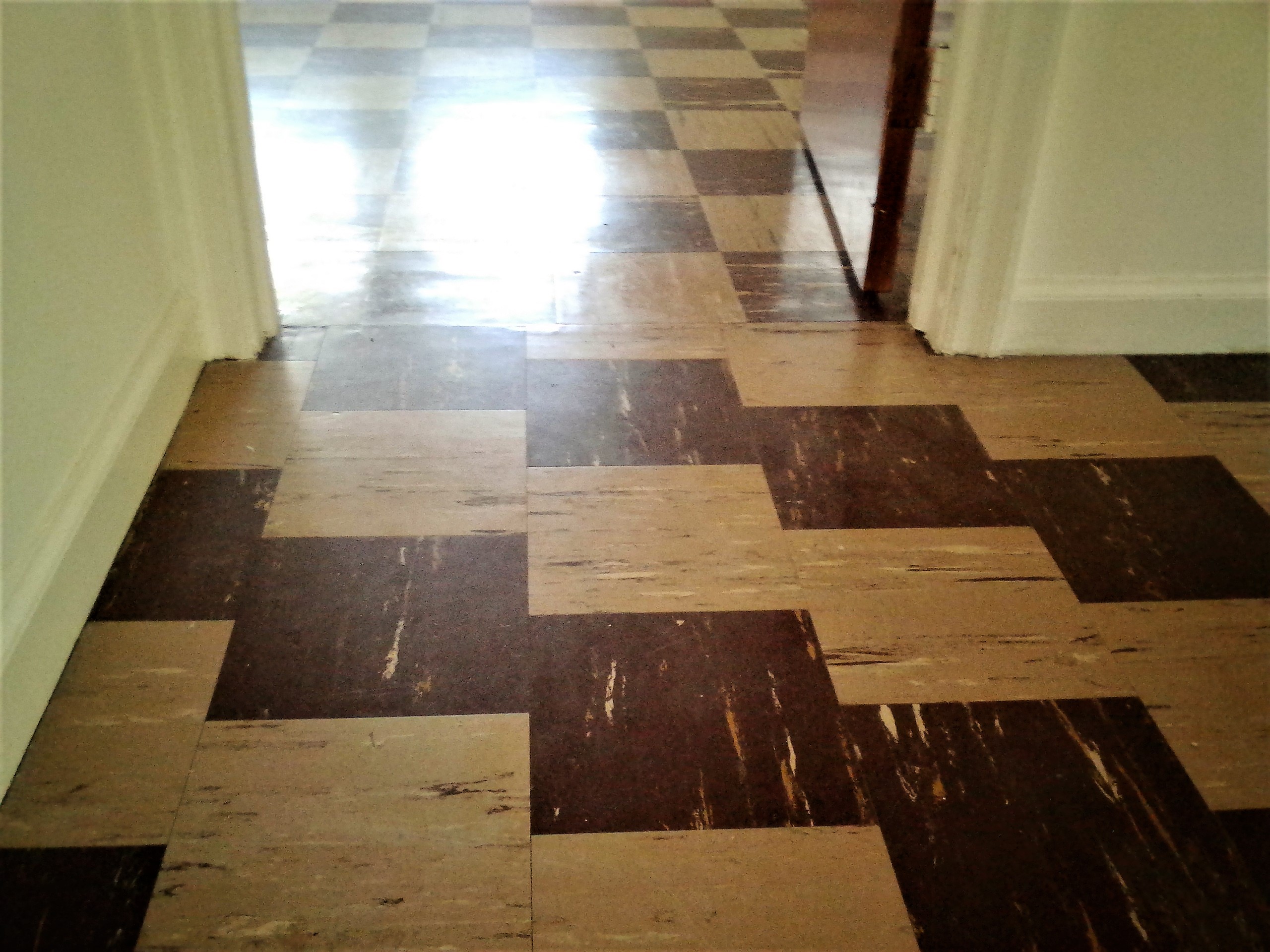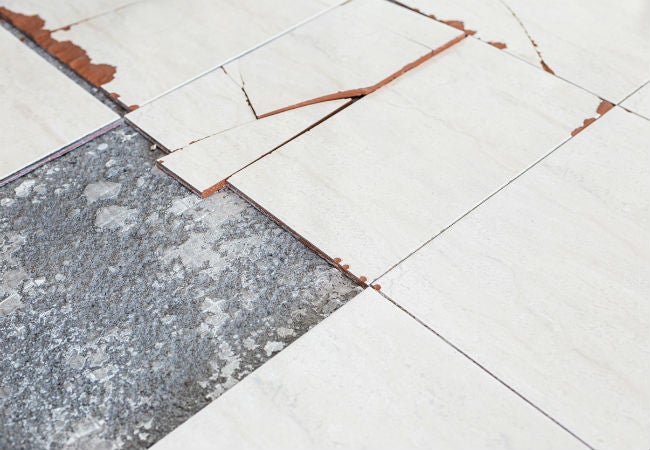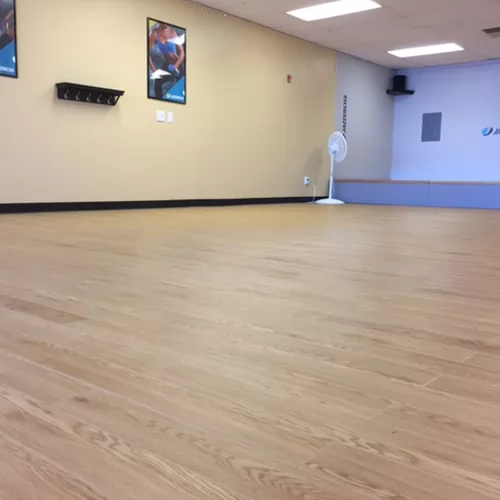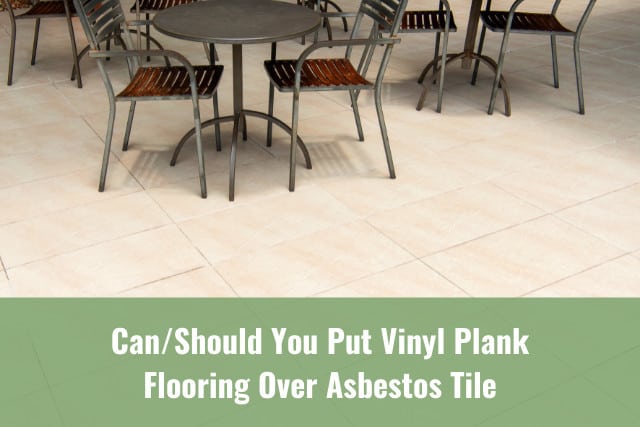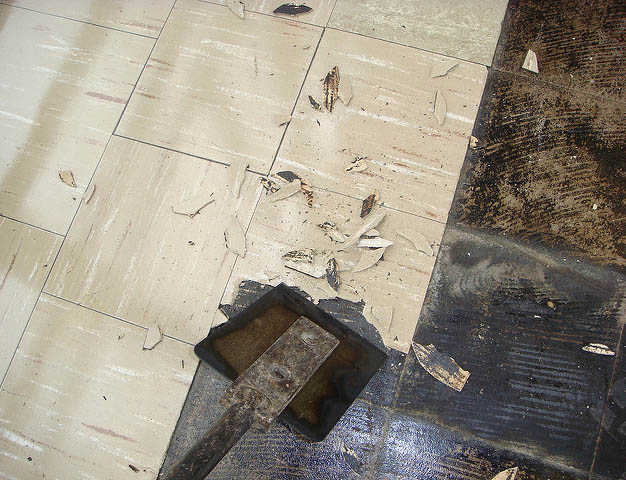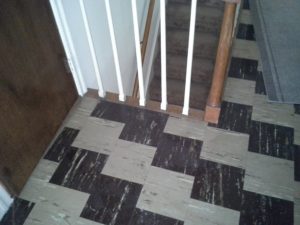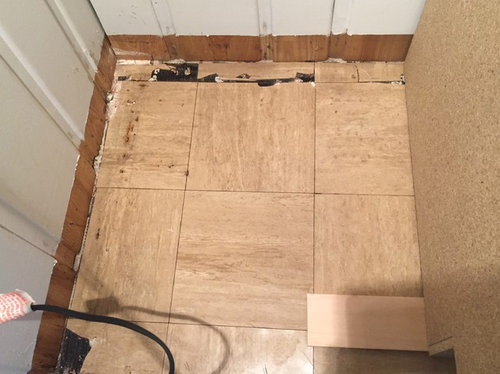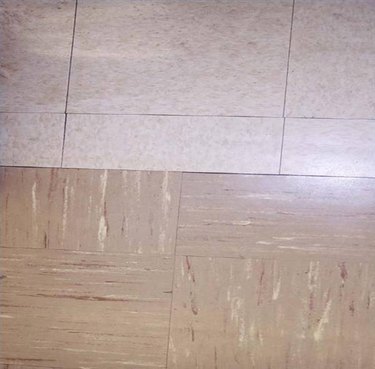Understanding the Concerns and Considerations of Installing Vinyl Flooring Over Asbestos Tile
Vinyl flooring has become a popular choice for homeowners looking to update their floors. However, when it comes to installing vinyl flooring over asbestos tile, there are some important concerns and considerations to keep in mind. Asbestos, a mineral once commonly used in building materials, can pose serious health risks if disturbed. Let’s discuss the key factors to consider before proceeding with vinyl flooring installation over asbestos tile.
- Health Risks: Asbestos is known to cause lung diseases, such as mesothelioma and asbestosis, when its fibers are inhaled. Disturbing asbestos-containing materials can release these harmful fibers into the air, putting occupants at risk. It is crucial to assess the condition of the asbestos tile and consult with professionals to determine whether it can be safely covered with vinyl flooring.
- Legal Requirements: Before proceeding with any renovations involving asbestos, it is essential to familiarize yourself with local regulations and requirements. Many jurisdictions have specific guidelines for handling and covering asbestos-containing materials. Failure to comply with these regulations can result in legal consequences and potential health hazards.
- Testing and Inspection: Prior to installing vinyl flooring over asbestos tile, it is recommended to conduct thorough testing and inspection. Certified professionals can assess the presence of asbestos and determine its condition. This step will provide valuable information to make informed decisions about the installation process and ensure the safety of occupants.
- Encapsulation vs. Removal: When dealing with asbestos tile, there are two main options: encapsulation or removal. Encapsulation involves covering the asbestos tile with a protective layer, such as vinyl flooring, to prevent the release of fibers. Removal, on the other hand, requires the complete elimination of asbestos-containing materials. It is important to consider the condition of the tiles, budget, and the expertise required for each option before making a decision.
- Proper Ventilation: Adequate ventilation is crucial during the installation process to minimize the risk of asbestos fiber release. Opening windows and using proper ventilation systems can help remove airborne particles and maintain a safe environment. It is advisable to consult with professionals who can provide guidance on proper ventilation techniques during the installation.
- Regular Maintenance: Once vinyl flooring is installed over asbestos tile, it is important to follow proper maintenance practices. Regularly inspect the flooring for any signs of damage or wear and promptly address any issues. Avoid using abrasive cleaners or harsh chemicals that could potentially damage the vinyl and release asbestos fibers.
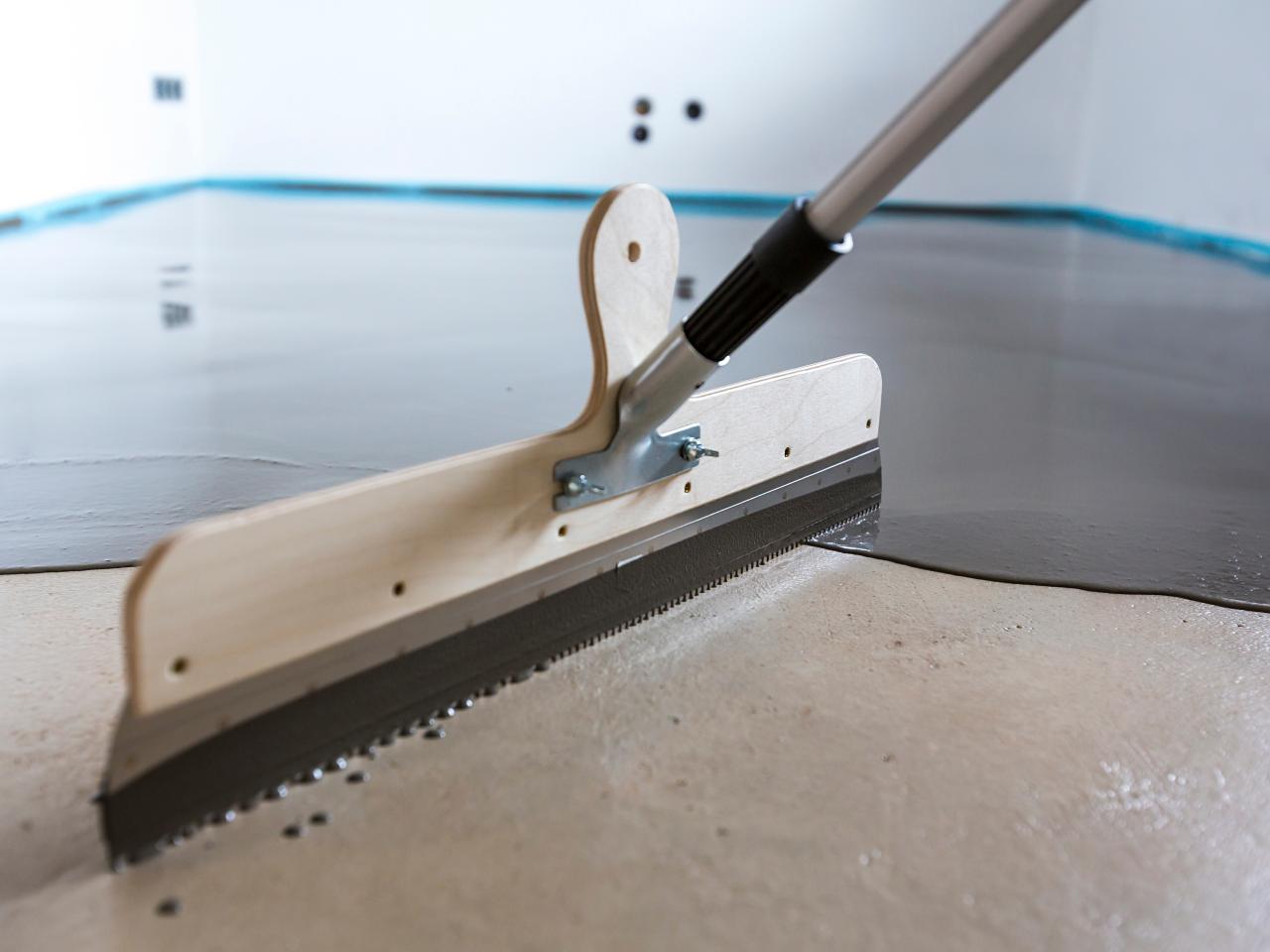
Examining the Risks and Benefits of Vinyl Flooring Installation on Asbestos Tile
Vinyl flooring installation on asbestos tile comes with both risks and benefits. It is essential to thoroughly examine these factors before proceeding with the project. We will talk about the safety aspects of installing vinyl flooring over asbestos tile, considering both the potential risks and the benefits it can offer.
Risks of Disturbing Asbestos: One of the major concerns when installing vinyl flooring over asbestos tile is the potential for disturbing the asbestos-containing materials. If the tiles are in good condition and not friable (easily crumbled), encapsulating them with vinyl flooring can be a safe option. However, if the tiles are damaged or deteriorating, the installation process may release asbestos fibers into the air, posing a health risk to occupants.
Benefits of Encapsulation: Encapsulating asbestos tile with vinyl flooring offers several benefits. Firstly, it provides a protective barrier that prevents the release of asbestos fibers. This can significantly reduce the health risks associated with asbestos exposure. Secondly, vinyl flooring is durable, easy to clean, and available in a wide range of styles, colors, and patterns, allowing homeowners to achieve the desired aesthetic while ensuring safety.
Health Considerations: Before proceeding with vinyl flooring installation, it is crucial to consider the health of the occupants, particularly those who may be more vulnerable to asbestos-related diseases, such as children and individuals with respiratory conditions. Consulting with medical professionals and following their recommendations can help ensure the safety of all occupants.
Professional Assessment: Hiring professionals to assess the condition of the asbestos tile and provide expert advice is highly recommended. They can conduct thorough inspections, perform air quality tests, and determine the best course of action based on the specific circumstances. Their expertise will help minimize risks and ensure a safe installation process.
Environmental Impact: Another aspect to consider is the environmental impact of installing vinyl flooring over asbestos tile. Vinyl flooring is generally considered an eco-friendly option as it can be recycled and has a longer lifespan compared to other flooring materials. However, it is important to dispose of any asbestos-containing materials properly and follow local regulations to minimize environmental harm.
Long-term Maintenance: Once vinyl flooring is installed over asbestos tile, regular maintenance becomes crucial. Proper cleaning and maintenance practices will help preserve the integrity of the vinyl and reduce the risk of asbestos fiber release. Following manufacturer guidelines and consulting with professionals can ensure the longevity and safety of the vinyl flooring.
Preparation and Precautions
Proper preparation is crucial when installing vinyl flooring over asbestos tile. Taking the necessary steps to prepare the surface will ensure a smooth and successful installation while minimizing the risk of asbestos exposure. Here are several essential steps and precautions to follow when preparing the asbestos tile surface for vinyl flooring installation.
Inspection and Testing: Before beginning any preparation work, it is important to conduct a thorough inspection of the asbestos tile. Check for any signs of damage, such as cracks, chips, or loose tiles. If you suspect any damage or deterioration, it is advisable to consult with professionals and conduct appropriate testing to assess the condition of the tiles.
Asbestos Abatement: If the asbestos tile is in poor condition or deemed unsafe, it may be necessary to hire a licensed asbestos abatement professional. They will safely remove the asbestos-containing materials following proper protocols and regulations to ensure the safety of everyone involved.
Cleaning and Sealing: If the asbestos tile is in good condition, the next step is to clean and seal the surface. Start by removing any dust or debris using a HEPA-filtered vacuum cleaner. Afterward, apply a high-quality asbestos encapsulant to seal the tiles. This helps prevent the release of asbestos fibers during the installation process.
Leveling the Surface: It is important to ensure that the asbestos tile surface is level and free from any imperfections before installing vinyl flooring. Use a self-leveling compound to fill in any gaps, cracks, or uneven areas. Follow the manufacturer’s instructions carefully when applying the compound to achieve a smooth and even surface.
Moisture Barrier Installation: Asbestos tile can be susceptible to moisture, so installing a moisture barrier is essential to protect the vinyl flooring. Lay a high-quality moisture barrier over the asbestos tile surface, ensuring it covers the entire area. This barrier helps prevent moisture from seeping into the vinyl flooring, which can lead to damage or mold growth.
Preparing the Subfloor: Finally, prepare the subfloor for the vinyl flooring installation. Ensure that the subfloor is clean, dry, and free from any debris. If necessary, repair any damaged areas or replace the subflooring to create a solid base for the vinyl flooring.
Choosing the Right Vinyl Flooring
Selecting the right vinyl flooring is essential for a successful installation over asbestos tile. With a wide range of options available, homeowners can choose a vinyl flooring type that meets their aesthetic preferences, durability requirements, and safety concerns. Let’s discuss the best options and features to consider when choosing vinyl flooring for installation over asbestos tile.
Vinyl Plank Flooring: Vinyl plank flooring offers a realistic wood flooring appearance, making it a popular choice for homeowners. It comes in various colors, textures, and finishes, allowing homeowners to achieve the desired look. Vinyl plank flooring is durable, water-resistant, and easy to clean, making it suitable for high-traffic areas.
Vinyl Sheet Flooring: Vinyl sheet flooring is available in large rolls, making it easy to install and maintain. It is a cost-effective option that offers a wide range of styles and patterns. Vinyl sheet flooring is also highly durable and water-resistant, making it suitable for kitchens, bathrooms, and other areas prone to moisture.
Luxury Vinyl Tile (LVT): Luxury vinyl tile (LVT) is a premium vinyl flooring option that replicates the look of natural stone or ceramic tile. It offers a wide variety of designs, including realistic textures and patterns. LVT is highly durable, scratch-resistant, and easy to clean, making it an excellent choice for areas with heavy foot traffic.
Thickness and Wear Layer: When selecting vinyl flooring, pay attention to the thickness and wear layer. A thicker vinyl flooring with a high-quality wear layer will provide better durability and resistance to scratches, stains, and wear. For areas with more foot traffic or potential for spills, consider opting for a thicker vinyl flooring with a thicker wear layer for enhanced longevity.
Slip Resistance: Safety is a crucial consideration, especially when installing vinyl flooring in areas prone to moisture, such as bathrooms or kitchens. Look for vinyl flooring with a slip-resistant surface or textured finish, as this will provide better traction and reduce the risk of slips and falls.
VOC Emissions: Volatile Organic Compounds (VOCs) are chemicals that can be emitted by certain flooring products, contributing to indoor air pollution. When choosing vinyl flooring, opt for products with low VOC emissions to maintain good indoor air quality. Look for vinyl flooring that has been certified as low-VOC or meets relevant environmental standards.
Professional Installation
When it comes to installing vinyl flooring over asbestos tile, hiring a professional is crucial for a safe and effective project. Professionals have the knowledge, experience, and equipment necessary to handle asbestos-containing materials safely. Let’s find out the reasons why hiring an expert is essential for a successful vinyl flooring installation over asbestos tile.
Expertise in Asbestos Handling: Professionals who specialize in asbestos removal and remediation have undergone extensive training and certification. They possess the knowledge and expertise to identify, handle, and dispose of asbestos-containing materials safely. By hiring an expert, you can ensure that the asbestos tile is handled properly, minimizing the risk of asbestos fiber release.
Compliance with Regulations: Asbestos removal and handling are subject to strict regulations and guidelines to protect both workers and the public. Professionals are well-versed in these regulations and ensure compliance throughout the entire process. They have the necessary permits and follow proper procedures for containment, removal, and disposal of asbestos-containing materials.
Safety Precautions: Professionals take comprehensive safety precautions to protect themselves, occupants, and the environment during the vinyl flooring installation process. They use specialized equipment, such as personal protective gear, HEPA-filtered vacuums, and wet cleaning methods, to minimize the release of asbestos fibers. Additionally, they establish containment areas and implement proper ventilation to prevent the spread of asbestos particles.
Proper Disposal: Disposing of asbestos-containing materials requires adherence to specific protocols and regulations. Professionals have the knowledge and resources to dispose of asbestos safely and legally. They package the materials in sealed, labeled containers and transport them to approved disposal facilities. By hiring an expert, you can ensure that the asbestos-containing materials are disposed of in accordance with the regulations.
Time and Cost Efficiency: While hiring a professional may involve an upfront cost, it can save you time and money in the long run. Professionals have the necessary skills and equipment to complete the project efficiently and effectively. They can handle any unforeseen challenges that may arise during the installation process, minimizing delays and costly mistakes.
Peace of Mind: Hiring a professional provides peace of mind, knowing that the vinyl flooring installation over asbestos tile is being carried out by experts. Professionals have the experience and knowledge to navigate potential risks and ensure a safe and successful project. By entrusting the job to professionals, you can focus on other aspects of your home improvement project with confidence.
What flooring should I use over old asbestos tiles?
Asbestos Floor Tile: Is It Safe to Remove on Your Own?
Asbestos Flooring-Do you really need that abatement?
Vinyl Asbestos Tile?
How to Seal Asbestos Tiles Hunker
Basement Flooring Over Asbestos Tiles, Ideas?
Related Posts:
